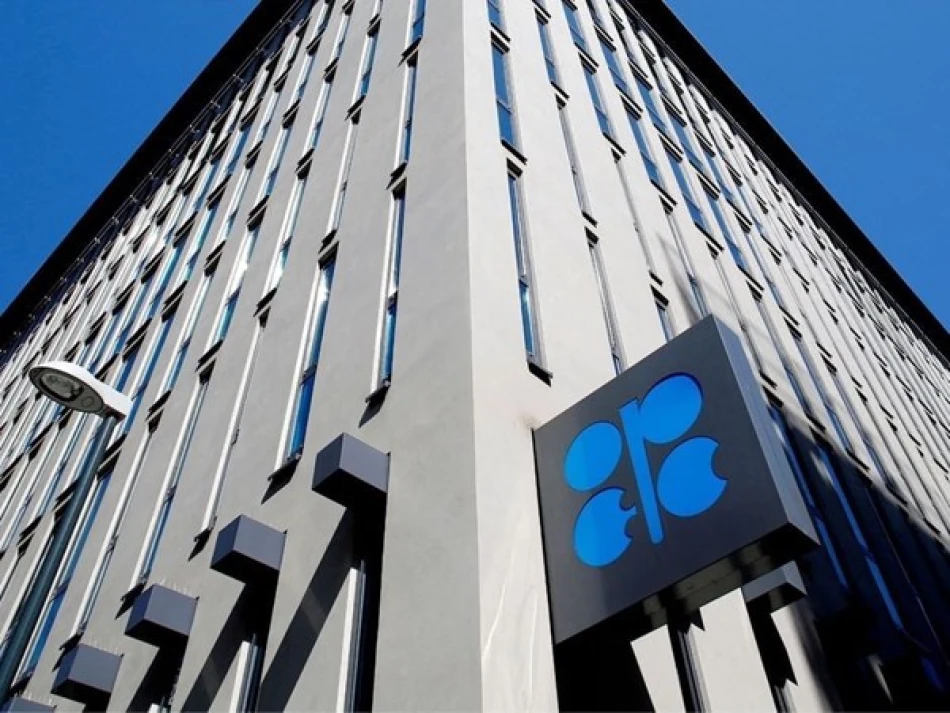
UAE's Non-Oil Economy Resilience Strengthens its Global Trade Hub Status
UAE's Economic Diversification Strategy Pays Dividends as Non-Oil Sectors Drive Growth
The United Arab Emirates is successfully reducing its dependence on oil revenues, with non-oil sectors demonstrating remarkable resilience and consistent growth throughout 2025. According to OPEC's latest monthly oil market report, the UAE's diversification efforts are yielding tangible results, positioning the nation as a regional economic powerhouse even as global oil demand growth remains modest.
Recovery Momentum Despite Regional Headwinds
The UAE's Purchasing Managers' Index (PMI) recovered to 53.3 points in August 2025, bouncing back from July's four-year low of 52.9 points. This rebound is particularly significant given the challenging operating environment marked by regional uncertainties and intensified competition for new orders.
The recovery demonstrates the underlying strength of the UAE's economic fundamentals. Any PMI reading above 50 indicates expansion, and the August figure suggests that businesses are successfully navigating external pressures while maintaining growth trajectories.
Credit Rating Stability Reinforces Investor Confidence
Fitch Ratings' decision to maintain the UAE's credit rating at AA- with a stable outlook reflects the country's robust sovereign assets and fiscal discipline. This rating places the UAE among the highest-rated emerging market economies globally, comparable to countries like South Korea and Taiwan.
The stable outlook is crucial for attracting foreign direct investment and maintaining favorable borrowing costs for both government and corporate entities. In an era where many oil-dependent economies face rating pressures, the UAE's maintained grade underscores its successful economic management.
Trade Performance Outpaces Global Averages
The UAE's non-oil foreign trade surged 24% in the first half of 2025, dramatically outperforming global trade growth of just 1.8%. This exceptional performance reinforces the country's position as a critical hub in global supply chains and highlights the effectiveness of its trade-friendly policies.
This growth trajectory mirrors successful trade hub models like Singapore and Hong Kong, where strategic geographic positioning combined with business-friendly regulations creates sustainable competitive advantages. The UAE's performance suggests it's successfully capturing market share from other regional trading centers.
Tourism Sector Delivers on Strategic Targets
Dubai's tourism sector exemplifies the diversification success story, welcoming nearly 10 million visitors in the first six months of 2025. This performance aligns with the emirate's D33 economic agenda, which aims to establish Dubai as a leading global destination by 2033.
The tourism figures are particularly impressive considering ongoing global travel uncertainties and increased competition from other regional destinations. The sector's strong performance provides crucial non-oil revenue streams and employment opportunities for the broader economy.
Global Oil Demand Context Validates Diversification Strategy
OPEC's unchanged global oil demand forecasts—1.3 million barrels per day growth for 2025 and 1.4 million for 2026—highlight why the UAE's diversification strategy is both timely and necessary. With OECD countries expected to contribute minimal demand growth (0.1-0.2 million barrels daily), oil-dependent economies face structural challenges.
The modest demand projections, concentrated primarily in non-OECD countries, suggest that oil revenues alone cannot sustain the growth ambitions of Gulf economies. The UAE's proactive diversification positions it advantageously compared to regional peers who remain more heavily dependent on hydrocarbon revenues.
Investment Implications and Regional Leadership
For investors, the UAE's economic performance data suggests a maturing economy with diversified revenue streams and reduced volatility compared to purely oil-dependent markets. The combination of strong trade performance, tourism growth, and maintained credit ratings creates an attractive investment environment.
The UAE's success also establishes a template for other Gulf Cooperation Council countries pursuing similar diversification strategies. As regional economic integration deepens, the UAE's position as a trade and financial hub becomes increasingly valuable, creating network effects that should sustain long-term growth prospects beyond traditional energy sector cycles.
Most Viewed News

 Layla Al Mansoori
Layla Al Mansoori






